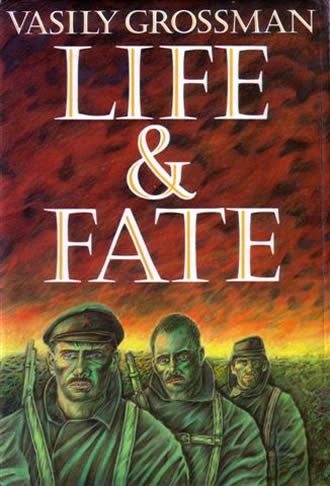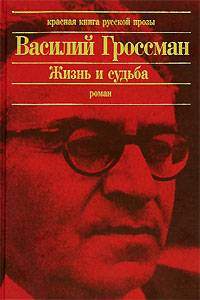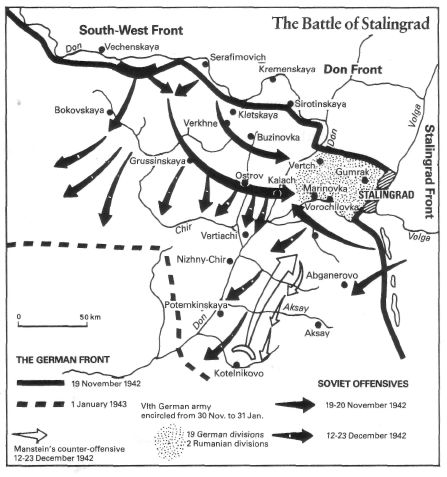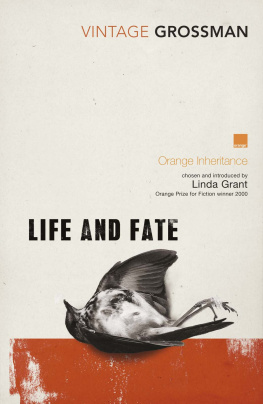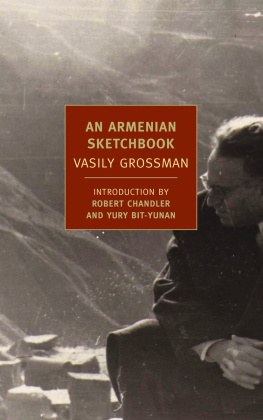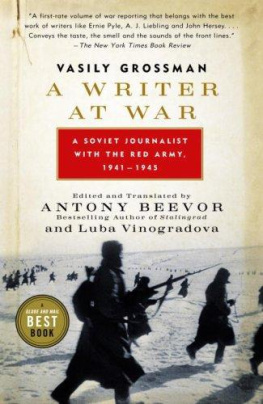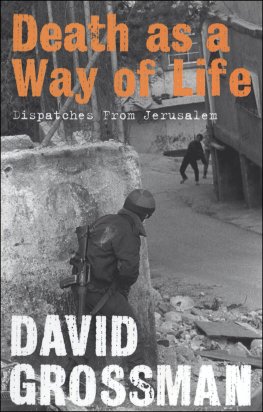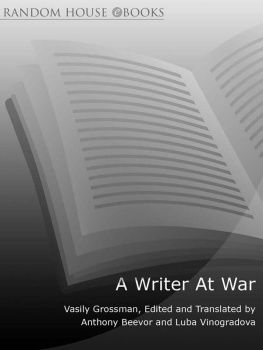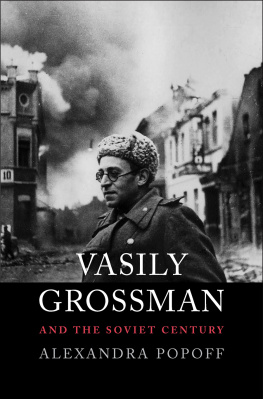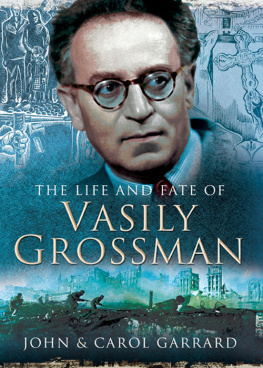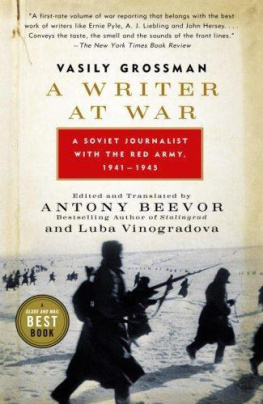Annotation
A book judged so dangerous in the Soviet Union that not only the manuscript but the ribbons on which it had been typed were confiscated by the state, Life and Fate is an epic tale of World War II and a profound reckoning with the dark forces that dominated the twentieth century. Interweaving a transfixing account of the battle of Stalingrad with the story of a single middle-class family, the Shaposhnikovs, scattered by fortune from Germany to Siberia, Vasily Grossman fashions an immense, intricately detailed tapestry depicting a time of almost unimaginable horror and even stranger hope. Life and Fate juxtaposes bedrooms and snipers' nests, scientific laboratories and the Gulag, taking us deep into the hearts and minds of characters ranging from a boy on his way to the gas chambers to Hitler and Stalin themselves. This novel of unsparing realism and visionary moral intensity is one of the supreme achievements of modern Russian literature.
Vasily Grossman
Life And Fate
Translated from the Russian by Robert Chandler
TRANSLATOR'S INTRODUCTION
VASILY GROSSMAN
Vasily Grossman was born on iz December 1905 in the Ukrainian town of Berdichev, the home of one of the largest Jewish communities in Eastern Europe. After studying chemistry at Moscow University, Grossman worked in a mine in the Donbass as an engineer and expert on safety precautions. In 1933 he moved to Moscow, where he was 'discovered' by Maxim Gorky; with the latter's support, he published his first novel, Glchkauf. It was followed by a long novel, Stepan Kolchagin, and several volumes of short stories, mostly evocations of the Civil War and the life of the workers. Despite an occasional vivid detail or slightly risky piece of philosophizing, these works are typical of the official Soviet literature of the time.
During World War II Grossman worked for Red Star, the leading army newspaper. Grossman personally witnessed the disastrous retreats of the first year, the defence of Stalingrad and the capture of Berlin. As a war correspondent, he was second in popularity only to Ilya Ehrenburg.
He was also one of the first witnesses of the consequences of the Holocaust. His articles on this theme were mostly published in Unity, a newspaper produced for international distribution by the Jewish anti-Fascist committee. In the Russian journal Znamya he published 'The Hell of Treblinka', the first journalistic account of a German death-camp in any language. Together with Ilya Ehrenburg, Grossman was on the editorial committee of the Black Book, a massive anthology yet to be printed in the Soviet Union of documents relating to the Holocaust.
It was this collective tragedy together with the death, at the hands of the Germans, of his own mother that led Grossman to become conscious of his Jewish roots. His mother, a schoolteacher, had stayed behind in Berdichev in order to look after a sick niece. She apparently continued working even after the Jews had been confined to the ghetto. Her fate is evoked with extraordinary eloquence and power in one of the most moving passages of Life and Fate.
As the Cold War began in the autumn of 1946, Grossman was viciously attacked by several of the most authoritative Soviet literary critics. The occasion was the publication of his play, If You Believe the Pythagoreans. Ideologically unorthodox views put in the mouth of an extremely negative character were taken as an expression of Grossman's own beliefs. However orthodox these were at that time, his naturally philosophical cast of mind was a danger to him; it was hazardous to present unorthodox views in any guise even if one then went on to refute them.
In 1943 Grossman had begun work on an epic novel about Stalingrad. In 1952 it was published in instalments in Novy Mir under the title For a Just Cause. Grossman enjoyed the full support of both Tvardovsky, the editor of Novy Mir, and Fadeev, the General Secretary of the Writers' Union. The initial reviews were highly favourable.
In February 1953, however, as a new series of purges, directed particularly at Jews, gathered momentum, Grossman was again attacked, possibly at the instigation of Stalin himself. During the following months he was repeatedly and hysterically denounced as a Jewish nationalist, a reactionary idealist alienated from Soviet society; Fadeev himself took part in these attacks. Grossman was saved from almost certain arrest not by his own 'letter of repentance', but by the change in the political climate following Stalin's death in March 1953. In 1954 For a Just Cause was republished in book form, once again with Fadeev's seal of approval.
The remaining years of the fifties were a time of public success for Grossman. For a Just Cause, acclaimed as a Soviet War and Peace, was republished several times, together with collections of his stories and articles written during the thirties and forties. In 1955 Grossman was awarded the important decoration 'The Banner of Labour'. Meanwhile he was writing his two great works, Life and Fate and Everything Flows.
Grossman completed Life and Fate in 1960. Originally intended as a sequel to For a Just Cause, in the event it was written in an entirely different spirit and can best be seen as a separate novel that happens to portray many of the same characters. For a Just Cause has pretensions towards the epic quality of Tolstoy, but is deadened by its ideological conformity; Life and Fate is the true War and Peace of this century, the most complete portrait of Stalinist Russia we have or are ever likely to have. The power of the other great dissident writers Pasternak, Nadezhda Mandelstam, Solzhenitsyn derives from their position as outsiders in Soviet society; Grossman's power derives from his extraordinarily intimate knowledge of every level of Soviet society.
Grossman delivered the manuscript to the editors of the journal Znamya. One can speculate on his reasons for doing this; it is possible that he seriously imagined the novel to be publishable this was, after all, the height of Khruschev's 'thaw'. In any case, the editors wasted no time in handing over the manuscript to the Cultural Section of the Central Committee. A year later it was returned to Grossman with a brief note to the effect that the novel was anti-Soviet. In February 1961 two KGB officers came to his home with orders to confiscate the manuscript. They took away every scrap of paper they could lay their hands on, even sheets of used carbon paper and typewriter ribbons; Grossman told them the whereabouts of any remaining copies or fragments.
It is worth noting that the only other book to have merited such serious attention from the Soviet authorities is The Gulag Archipelago, a work of history rather than imaginative literature. Pasternak, for example, made no attempt to conceal the existence of Doctor Zhivago. He gave copies to friends and editors and even trusted the manuscript to the Soviet postal service. The attacks on Pasternak were unleashed not by the discovery of the novel's existence, but by its eventual publication abroad.

